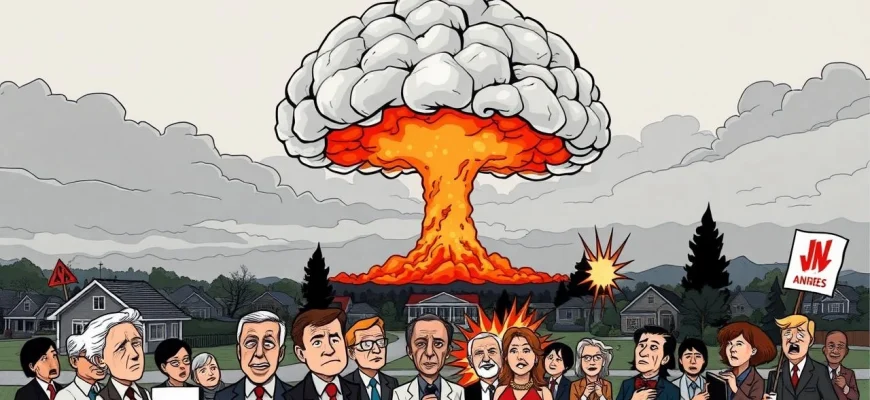If you're a fan of the darkly comedic and satirical masterpiece 'Dr. Strangelove or: How I Learned to Stop Worrying and Love the Bomb' (1964), you're likely craving more films or shows that blend sharp wit with biting social commentary. This article is your guide to 10 similar titles that capture the same irreverent humor, political satire, and absurdist charm. Whether you're drawn to Cold War paranoia, clever dialogue, or unforgettable characters, these recommendations will keep you entertained and thoughtfully engaged.
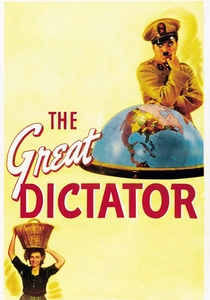
The Great Dictator (1940)
Description: Charlie Chaplin's satire of Hitler predates but parallels 'Dr. Strangelove's' mockery of authoritarianism and militarism. Both films use comedy to expose the ridiculousness of tyrants and the dangers of unchecked power, though Chaplin's approach is more overtly sentimental.
Fact: Chaplin's first full talkie. The famous final speech breaks character to deliver a heartfelt plea for peace. It was banned in several countries during WWII.
 Watch Now
Watch Now 
The Manchurian Candidate (1962)
Description: This film shares with 'Dr. Strangelove' a deep skepticism of political and military power, wrapped in a thriller about brainwashing and assassination. Both films critique the Cold War era's political manipulations and the absurdity of its underlying fears.
Fact: The film was pulled from circulation after JFK's assassination due to its plot involving political murder. Angela Lansbury played the manipulative mother, a role far removed from her later 'Murder, She Wrote' persona. It was remade in 2004 with Denzel Washington.
 Watch Now
Watch Now 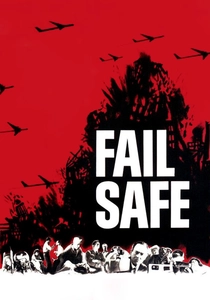
Fail Safe (1964)
Description: Similar to 'Dr. Strangelove' in its Cold War paranoia and themes of nuclear annihilation, 'Fail Safe' presents a more serious, dramatic take on the accidental triggering of a nuclear war. Both films explore the fragility of human control over military systems and the potential for catastrophic error.
Fact: 'Fail Safe' was released the same year as 'Dr. Strangelove,' leading to comparisons between the two. The film was initially overshadowed by 'Dr. Strangelove' due to the latter's satirical tone. It was directed by Sidney Lumet, known for his intense, dialogue-driven films.
 Watch Now
Watch Now 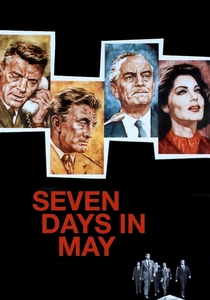
Seven Days in May (1964)
Description: Like 'Dr. Strangelove,' this film delves into the theme of military leaders overstepping their bounds, though it plays it straight as a political thriller. Both films reflect the era's anxieties about the military-industrial complex and the threat it poses to democracy.
Fact: The film stars Burt Lancaster and Kirk Douglas, two of Hollywood's most prominent actors at the time. It was based on a novel by Fletcher Knebel, who also co-wrote 'Fail Safe.' President John F. Kennedy reportedly encouraged the making of the film.
 Watch Now
Watch Now 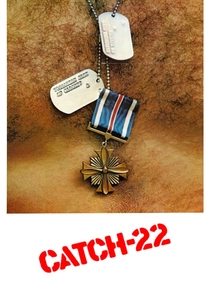
Catch-22 (1970)
Description: Sharing 'Dr. Strangelove's' absurdist take on war and bureaucracy, 'Catch-22' uses dark humor to critique the illogical and often insane nature of military life. Both films highlight the madness inherent in systems that prioritize rules over human lives.
Fact: Based on Joseph Heller's novel, the film struggled to capture the book's nonlinear narrative. Mike Nichols directed, fresh off the success of 'The Graduate.' The term 'Catch-22' has entered the lexicon to describe no-win situations.
 Watch Now
Watch Now 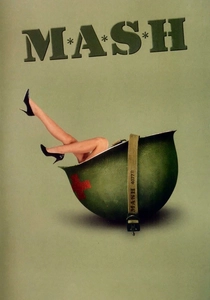
M*A*S*H (1970)
Description: With its blend of dark humor and anti-war sentiment, 'M*A*S*H' mirrors 'Dr. Strangelove's' satirical approach to military life. Both films use comedy to underscore the absurdity and tragedy of war, though 'M*A*S*H' focuses on the Korean War as a stand-in for Vietnam.
Fact: The film spawned the long-running TV series, though the tone was significantly lighter. Robert Altman's direction introduced overlapping dialogue, a signature of his style. It won the Palme d'Or at Cannes.
 Watch Now
Watch Now 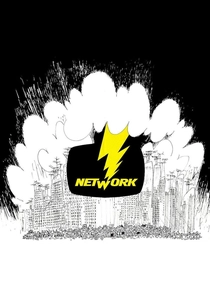
Network (1976)
Description: Like 'Dr. Strangelove,' 'Network' is a sharp satire, though it targets media rather than military madness. Both films critique systems that exploit fear and spectacle, with 'Network' prophesying the rise of sensationalist news and reality TV.
Fact: Written by Paddy Chayefsky, known for his biting social commentary. Features the iconic line 'I'm mad as hell and I'm not going to take this anymore!' Won four Oscars, including Best Actor for Peter Finch.
 Watch Now
Watch Now 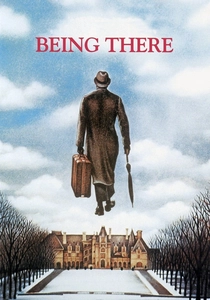
Being There (1979)
Description: This film shares 'Dr. Strangelove's' absurdist humor, particularly in how it portrays the gullibility of those in power. Both films feature characters whose perceived genius is actually a reflection of others' stupidity, though 'Being There' is more gentle in its satire.
Fact: Peter Sellers' final film role. The ending is famously ambiguous, sparking debate among viewers. Based on a novel by Jerzy Kosinski, who also wrote the screenplay.
 Watch Now
Watch Now 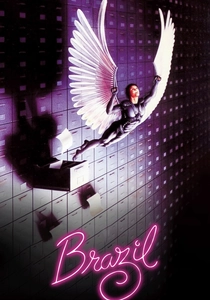
Brazil (1985)
Description: Terry Gilliam's dystopian satire shares 'Dr. Strangelove's' dark humor and critique of bureaucratic insanity. Both films present worlds where systems designed to protect instead entrap and dehumanize, though 'Brazil' leans more into surrealism and fantasy.
Fact: The film's release was famously delayed due to studio disputes over its bleak ending. It's considered part of Gilliam's 'Trilogy of Imagination.' The title comes from the song 'Aquarela do Brasil,' which features prominently.
 Watch Now
Watch Now 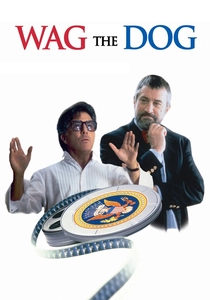
Wag the Dog (1997)
Description: This film shares 'Dr. Strangelove's' satirical edge, targeting political manipulation and media complicity. Both films explore how those in power manufacture crises to distract or control the public, though 'Wag the Dog' focuses on media rather than military absurdity.
Fact: Released shortly before the Monica Lewinsky scandal, which mirrored some plot elements. Dustin Hoffman's character is loosely based on real-life producer Robert Evans. The title comes from the saying 'the tail wagging the dog.'
 Watch Now
Watch Now 
